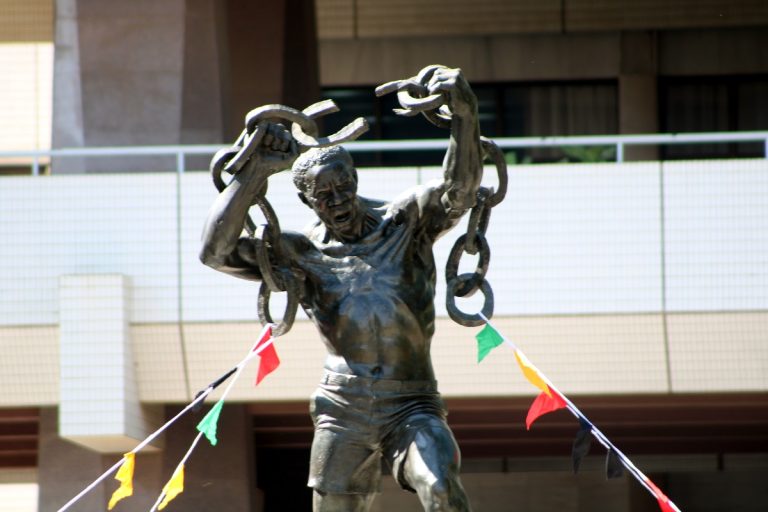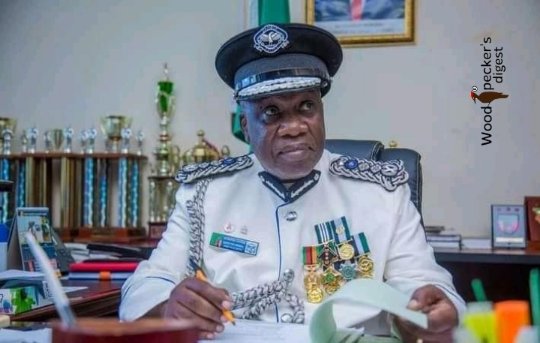
Privatisation killed the backbone of Zambia’s economy, mining firms that provided employment opportunities for citizens and generated revenue for national development.
By Dr. Mwelwa | WD Columnist.
Take Home Points:
◾Kenneth Kaunda, Zambia’s visionary founding father, believed in the capacity of his people to chart their own destiny.
◾The imperialists and their allies in the West viewed Zambia’s quest for self-reliance as a threat to their interests.
◾Through transparent governance, equitable distribution of wealth, and wise management of resources, Zambia can once again become the architect of its own destiny.
◾Together, we can break the chains of neocolonialism and foster a Zambia that stands tall as a shining example of economic autonomy and national pride.
Lusaka, Aug. 18 – In the quest for liberation from the chains of neocolonialism, one man stood at the helm, guiding Zambia towards a future of self-reliance and prosperity. That man was Kenneth Kaunda, the visionary leader who believed in the capacity of his people to chart their own destiny. Under his leadership, Zambia took significant steps to break free from the clutches of foreign dominance and build a truly independent nation.
During his time in power, Kaunda recognized the importance of the mining sector as a catalyst for economic growth and development. He understood that it held the key to unlocking Zambia’s potential and transforming it into a self-reliant nation.
Also Read: We don’t have a capable leader to mobilise national wealth.
“It would be a waste of time to get the debt restructuring without creating the necessary production capacity in the country to repay the debts when the repayments are due!”
Thus, the government established state-owned mining companies like Zambia Consolidated Copper Mines (ZCCM), Zambia Industrial and Mining Corporation (ZIMCO), Industrial Development Corporation (INDECO), and Lusaka Engineering Company (LENCO).
These mining companies became the backbone of Zambia’s economy, providing employment opportunities for its citizens and generating revenue for national development. With ZCCM leading the charge as one of the largest copper producers in the country, Zambia began to stand tall on the global stage, no longer confined to the shadows of neocolonial control.
Under the watchful eye of Kaunda, ZCCM not only contributed to economic growth but also invested in infrastructure, education, and healthcare. Communities surrounding the mining sites flourished as the ripple effects of these investments spread. Gradually, Zambia started to believe in its own potential and ability to be self-sufficient.
However, Kaunda’s dream of true independence was not without its challenges. The imperialists and their allies in the West viewed Zambia’s quest for self-reliance as a threat to their interests. They deliberately underpriced Zambia’s copper on the London Metal Exchange, undermining the nation’s economic progress. Despite these tactics, Kaunda remained steadfast, guiding his people through the storm of opposition.
Tragically, as the years rolled on, the winds of change blew in a different direction. President Frederick Chiluba assumed power, succumbing to the pressure exerted by the imperialists.
Privatization of state-owned enterprises, including the mining companies built by Kaunda, became the order of the day. This opened the floodgates for foreign companies and private investors to take control of Zambia’s precious mineral resources.
Remarkably, as soon as our mining companies were privatized, the prices of copper skyrocketed. With increased competition and private-sector efficiency, our mineral wealth gained recognition and its true value began to be realized.
Zambia’s copper became highly sought after, and our nation became a major player in the global market. We were deceived by the western imperialists to believe we had no capacity and yet all they wanted was to rule us beyond independence day.
The consequences were dire. Income inequality soared as the benefits of privatization failed to trickle down to the masses. Neocolonial forces, once again, tightened their grip on Zambia, exploiting its mineral wealth without regard for the welfare of its people.
Civil society organizations, once vocal in holding the government accountable, fell silent in the face of dwindling funding from Western powers.
Yet, hope springs eternal. The legacy of Kaunda and the spirit of Zambia’s fight for independence remain rooted in the hearts of its people. It is time to reclaim that spirit, to rise from the ashes of neocolonialism, and rekindle the path to economic self-reliance.
Through transparent governance, equitable distribution of wealth, and wise management of resources, Zambia can once again become the architect of its own destiny. By asserting control over its mineral wealth, the nation can move towards building a future where prosperity is shared by all.
Also Read: Hichilema, a western puppet, fails to attend Russia – Africa Summit.
Let us remember the lessons of the past and draw strength from the struggles endured. Together, we can break the chains of neocolonialism and foster a Zambia that stands tall as a shining example of economic autonomy and national pride. The journey may be challenging, but the destination is within our grasp. It is time for Zambia to break free and soar to new heights of self-reliance and prosperity.
About The Author: Dr. Lawrence Mwelwa is a respected academician, a former Vice Chancellor, a politician and revolutionary writer.
To make well-informed and thoughtful decisions, one must be able to see things from perspectives other than one’s own. Gain new perspectives by following Woodpecker’s Digest! Reading does open up a world of possibilities.
©2023 Woodpecker’s Digest.
Putting news into perspective








